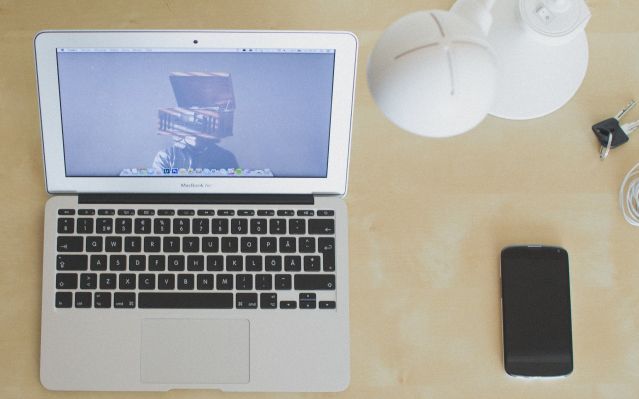Career
3 Keys to Work Smarter Not Harder
It's not about the amount of time you put in but how you use that time.
Posted November 6, 2014
There's a misconception in society that in order for us to be successful we need to work crazy long hours. This is completely backwards. When we work long hours we are more tired, less focused and less resilient to stress. We become pretty useless pretty quickly because our bodies and brains aren't getting enough time to recharge and recover. So how do we avoid the long hour trap and actually learn to work smarter not harder?

Image by Aleksi Tappura (via unsplash.com)
As an entrepreneur I've had to to think long and hard about this because I know that if I don't do something that needs to get done, there is nobody else to do it. Many times that thought has led me into working until silly o'clock to do non-urgent tasks which have been on my plate for a while but haven't been completed because they haven't been a priority. Newsflash: If they're not a priority they don't need to get done right now. Go to bed! When they become pressing then they become a priority and then I actually make time to do them during my normal working day.
That little reality check brings me to my 3 keys to work smarter not harder. To be honest, this list could have 50 tips on it (or probably even more) but as you can imagine, it's hard to stick to 50 tips. So I've narrowed this list down to the three tips which have helped me the most in my entrepreneurial journey.
- Finish each day by writing down 3 achievements from that day and your top 3 priorities for the next day. This means you wrap up the day on a good note, celebrating how much you have managed to do. Also, by setting priorities for the next day, you're guaranteeing a productive start to the day because you can skip checking your email or doing your usual procrastination tactics and go straight into working on your number 1 priority when you start work. Your brain is at its most powerful in the morning so it's important to use that power wisely. If you've already decided on your priorities for the day the evening before, you won't waste any brain power on decision making and instead use it on getting your most important tasks done.
- Feeling stuck on a challenge? Walk away. The more you obsess over being stuck, the more likely it is that you will stay stuck. If you've been staring at a problem for 20 minutes without being able to solve it, walk away from it. Take a break. Get away from your computer or the situation, get some fresh air, eat some healthy snacks and chat to some coworkers. Do something else for a while, something easy that will give you little wins right away and give you a positive sense of achievement. Often the answers to those tricky challenges come when we are not thinking about them, or when we approach them again with a fresher, more positive mind and a new perspective.
- Set a deadline to finish work at a certain hour every day. This one is the most powerful one for me. If I have a deadline to work towards, I'm actually more focused and achieve things in a much shorter timeframe. When you know you have to leave by e.g. 7 pm, you make sure you focus on your priorities as well and get those done first rather than doing all kinds of mini admin tasks which don't play a massive role in the success of your day. When I go through phases that I run over this deadline, I start to make plans in the evening so I actually have to stop. I make a plan to meet a friend for dinner, go for a drink with my neighbour, or call my mom at a certain hour to catch-up. That way I hold myself accountable for that deadline because other people are counting on me for it.
Learning to work smarter is the best gift you can give yourself and your clients or employer. Remember it's not about the hours you put in but how you use your hours. Try out these three tips and enjoy the productivity you'll find. Last but not least, I want to finish with a quote by Jason Friend and David Heinemeier Hanson.
"Workaholics aren't heroes. They don't save the day, they use it up. The real hero is already home... Because they figured out a faster way to get things done."


